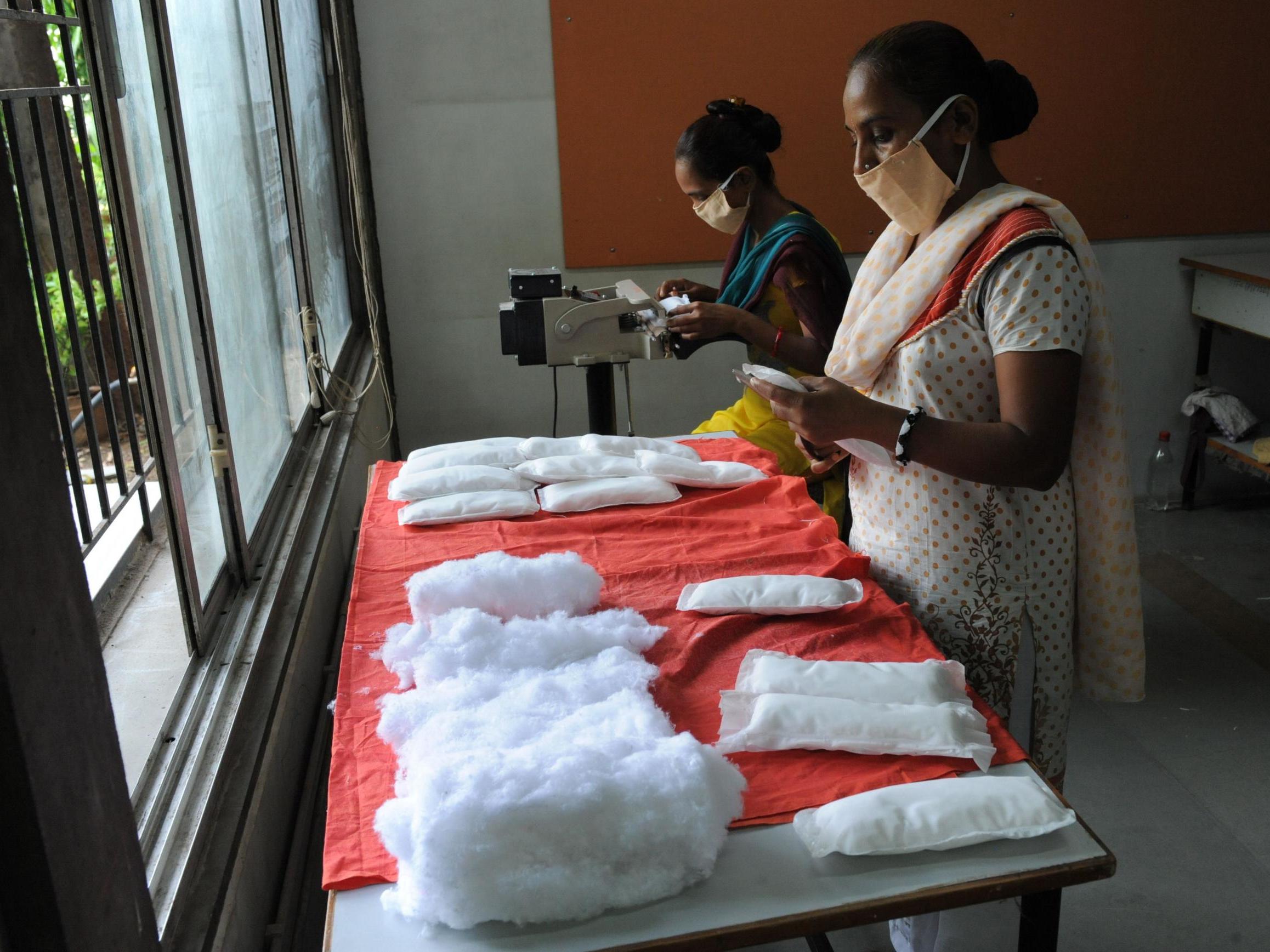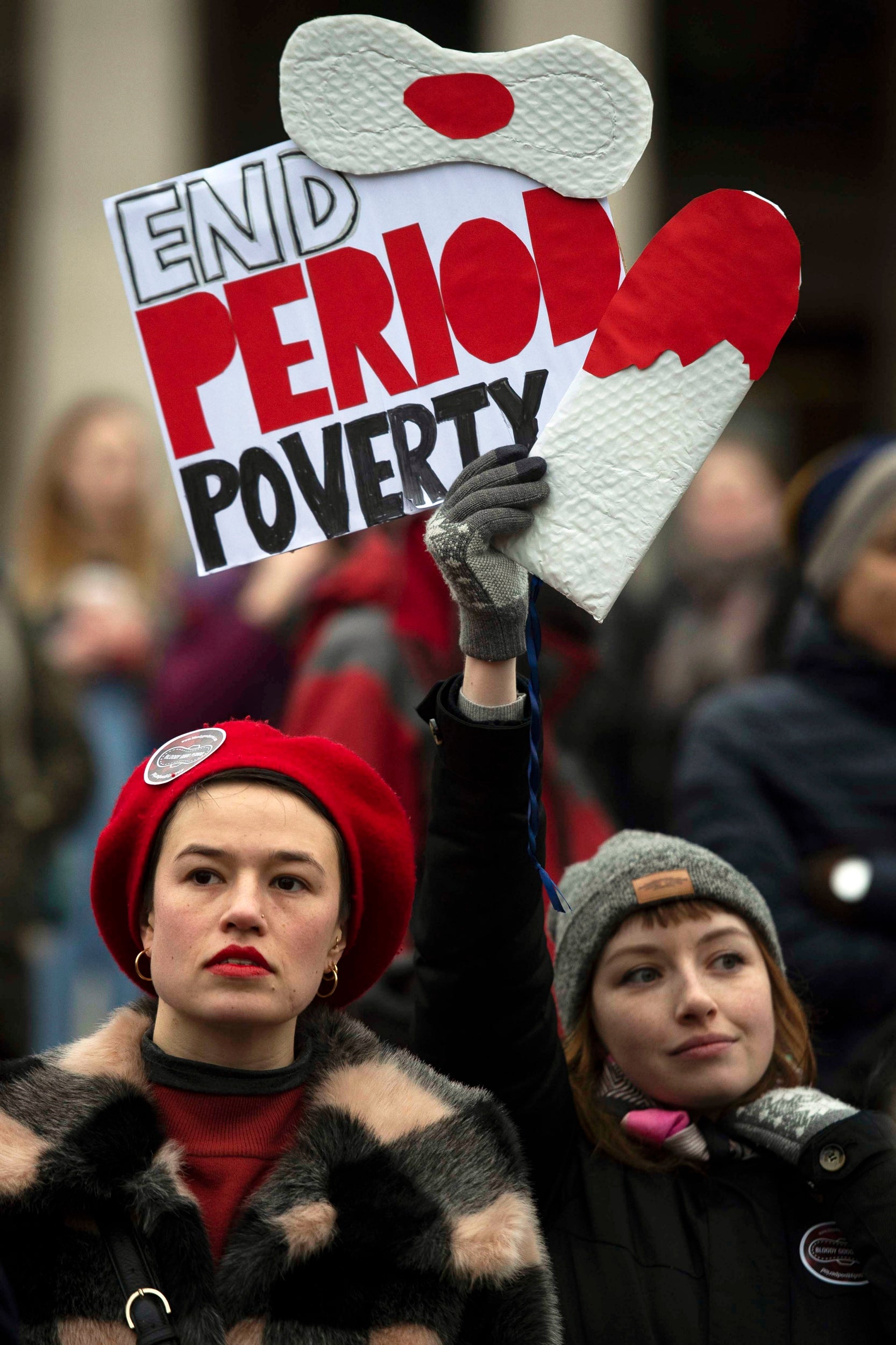Government launches bid to end period poverty worldwide by 2030
Huge health problem from women and girls without sanitary products ‘using dirty items of clothing, inserting plastic or overusing a pad or tampons’

Your support helps us to tell the story
From reproductive rights to climate change to Big Tech, The Independent is on the ground when the story is developing. Whether it's investigating the financials of Elon Musk's pro-Trump PAC or producing our latest documentary, 'The A Word', which shines a light on the American women fighting for reproductive rights, we know how important it is to parse out the facts from the messaging.
At such a critical moment in US history, we need reporters on the ground. Your donation allows us to keep sending journalists to speak to both sides of the story.
The Independent is trusted by Americans across the entire political spectrum. And unlike many other quality news outlets, we choose not to lock Americans out of our reporting and analysis with paywalls. We believe quality journalism should be available to everyone, paid for by those who can afford it.
Your support makes all the difference.A commitment to end period poverty around the world by 2030 will see millions go to projects providing sanitary products and working to eradicate the stigma that persists in the UK and beyond.
Around half of women and girls around the world lack access to sterile sanitary products, and often have to use strips of clothing, grass or animal hides to manage their periods.
Lack of affordable products and taboos around menstruation mean many girls miss school on their period, hampering their education and future opportunities.
Ahead of International Women’s Day the government announced a new campaign to end these injustices.
It will see £2m invested in international aid to fund projects around the world providing sanitary products and education.
The campaign will also launch a new taskforce bringing together charities, manufacturers and the retail sector to find ways to address period poverty in the UK.
Work by Girl Guiding UK found one in five girls and young women have been made to feel ashamed or embarrassed about their period.

Even the NHS has failed to provide universal access to sanitary products to female patients in hospitals. Though this will end from Summer 2019 after a commitment to provide tampons and pads free for all patients who need them.
“Empowerment starts when you are young,” Minister for Women and Equalities Penny Mordaunt said.
“Girls should be able to focus on their education and their future without being worried about or embarrassed by their periods.”
She said the measures would support British entrepreneurs working to tackle period poverty, but the campaign’s reach was broader.
“This is a global issue. Without education, women and girls around the world won’t be able to take the steps to reach their true potential.”
The announcement also precedes a new government strategy setting out how it intends to empower women who are financially vulnerable, in low-paid jobs or out of work.
Pay inequality, career breaks and care responsibilities mean lower earning women accumulate a third of the pension of men in full-time employment.
Despite the government moving to make companies publish details on their gender pay gap, latest analysis shows the gap has widened in the scheme’s first year.
“Period poverty is real and is happening all around the world, including here in the UK and it needs to be addressed,” said Ruby Raut, CEO and co-founder of UK eco-friendly sanitary wear company WUKA.
Around the world, she said, girls and women have few choices and “end up using dirty items of clothing, inserting plastic or overusing a pad or tampon, which is unhygienic and a huge health problem for women.”
Join our commenting forum
Join thought-provoking conversations, follow other Independent readers and see their replies
Comments